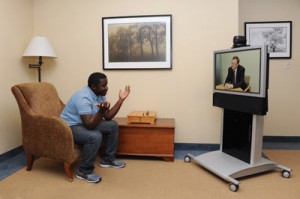Advances Show Progress in Reimbursement for Telepsychiatry
Back in 2013, Medicare proposed changes to its practices in reimbursement for telemedicine by adding seven new medical billing codes for this type of remote healthcare. These changes have been slowly making progress and put into action by practices and healthcare systems who are looking to increase their number of patient visits with the aid of technology and telehealth.
However, there are three restrictions imposed via Medicare on the use of telepsychiatry. The patient must be:
- Located in a non-metropolitan area
- Located at a qualified facility with proper staff supervision
- Include an approved procedure
If these three areas can be satisfied, many who were previously limited in their access to psychiatric help have now gained a powerful resource to help them work through both crisis situations and their everyday care.
Types of Codes
Medicare is specific about the services for which it will offer reimbursement for telepsychiatry. The additional codes for telepsychiatry include mental health services such as:
- Psychoanalysis
- Family psychotherapy (with patient and without patient)
- Overtime sessions (that run longer than one hour)
- Consultations
- Pharmacologic management
- Intervention
- Follow-up visits
- Problem-focused visits
- Diagnostic interview
CMS requires that both the patient and provider have access to two way audio video equipment and sometimes requires an initial face-to-face visit before telepsychiatry can be administered. The patient and doctor must be able to both see and hear each other throughout the entire visit.
Success Stories
The Department of Veteran Affairs recently released a case study of 255 veteran patients being treated for PTSD via tele psychiatry. Of the 133 who were randomly selected to participate in the telepsychiatry study, 73 showed significant improvement in their mental health over the 12 month period. This is important because, as research has shown, many veterans return to live in increasingly rural communities, with more than two thirds of all veterans living in geographic areas that qualify for this form of telemedicine.
Slow Progress
As usual, this shift has taken many years to gain a foothold within healthcare systems across the US. Startup costs are often expensive, as the HIPAA compliant equipment, services, etc. can be a serious undertaking. However, as more and more hospitals and practices take advantage of this technological advance, more patients have access to the type of care they so desperately need. We can expect for it to be another several years before there are any major transformations in the world of telemedicine, but so far, the results from early adopters are promising.
What are your thoughts on telemedicine–specifically telepsychiatry?






